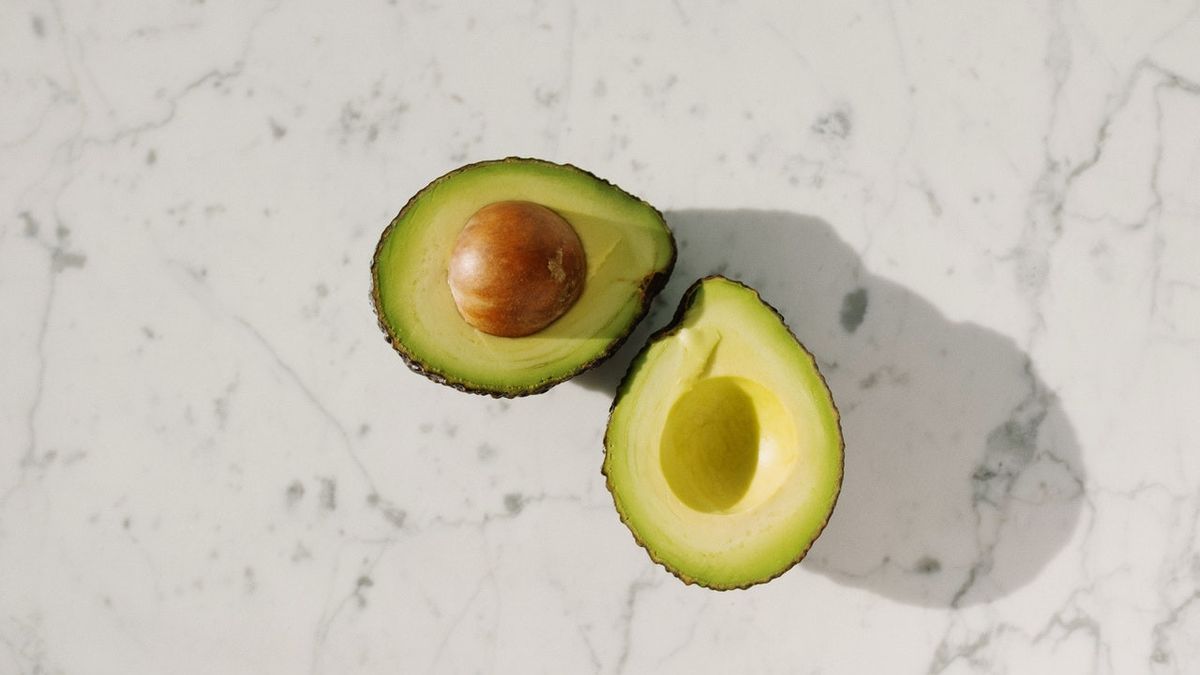JAKARTA - Avocado is a native fruit from Mexico. Research has linked that eating avocados can provide a variety of health benefits, such as a reduced risk of cardiovascular disease. This fruit is also very filling and also useful for weight loss.
There are many types of avocado, varying in color, size and shape. Usually, people process avocados into delicious smoothies.
Avocados are usually pear-shaped to round, and can range in color from pale green to almost black when fully ripe. The most popular type is Hass avocado, which is round in shape with black skin.
Avocados are made up of about 73 percent water, 15 percent fat, 8.5 percent carbohydrates, mostly fiber, and 2 percent protein. Compared to other fruits, the sugar content in avocados is classified as the least. Half an avocado, or 100 grams, only contains 0.66 grams of sugar, including glucose, fructose, sucrose, and galactose. Because of its low sugar content, avocados have a very low glycemic index score.

Avocado contains lots of fiber. In 100 grams of avocado contains 6.7 grams of fiber. This is 24 percent of the daily value needed by the body. Fiber is an important dietary component with many health benefits. For example, it can regulate appetite, feed the good bacteria in the gut, and reduce the risk of many diseases, including heart disease, stroke, obesity, type 2 diabetes, and depression.
FatAs a rich source of unsaturated fatty acids, avocado is a fruit with a variety of good benefits for the body. There are several types of fat in food. The most abundant fatty acid is oleic acid, which is the main component of olive oil and is also found in avocados.
Oleic acid can reduce inflammation, has a good effect on the prevention of cancer, heart disease, and diabetes.
Vitamins and mineralsAvocados are also rich in many additional vitamins and minerals. Some of the vitamins and minerals contained in avocado are:
- Folate (B9): Avocados contain large amounts of folate which is essential for normal cell function and tissue growth, and is especially important for pregnant women
- Vitamin K1: Vitamin K1 is important for blood clotting and may have benefits for bone health.
- Potassium: This is an essential mineral that is beneficial for controlling blood pressure and heart health.
Then how many calories are in avocado?Half an avocado, about 100 grams contains 160 calories. Some people following a calorie diet think that they should avoid avocados because of their high fat content.
In fact, adding avocado to the diet makes people feel faster and reduces the urge to eat for hours compared to a meal without avocado.
For this reason, avocado can be an effective weight loss addition. Avocados are also high in fiber, low in carbohydrates, and do not raise blood sugar levels. All of these ingredients make it a food friendly for pediet.
However, please be aware. Avocados are safe for consumption by most people, but they can cause problems for allergy sufferers. Indeed, people rarely experience avocado allergies.
However, people with latex allergies can experience allergic reactions to fruits, such as avocado, banana, or kiwi. According to a study, as reported by Medicalnewstoday, on Thursday, February 4, this condition is called latex-fruit syndrome or latex fruit syndrome.
In latex fruit syndrome, the immune system attacks fruit proteins that are similar to the allergy-causing proteins in latex. Allergic reactions that arise include stomach pain, stomach cramps, headaches, or serious symptoms, such as nausea and vomiting.
So, if you are on a diet program, don't hesitate to eat avocado. Although avocado calories are quite high, it can control your appetite because it contains fiber.
The English, Chinese, Japanese, Arabic, and French versions are automatically generated by the AI. So there may still be inaccuracies in translating, please always see Indonesian as our main language. (system supported by DigitalSiber.id)








